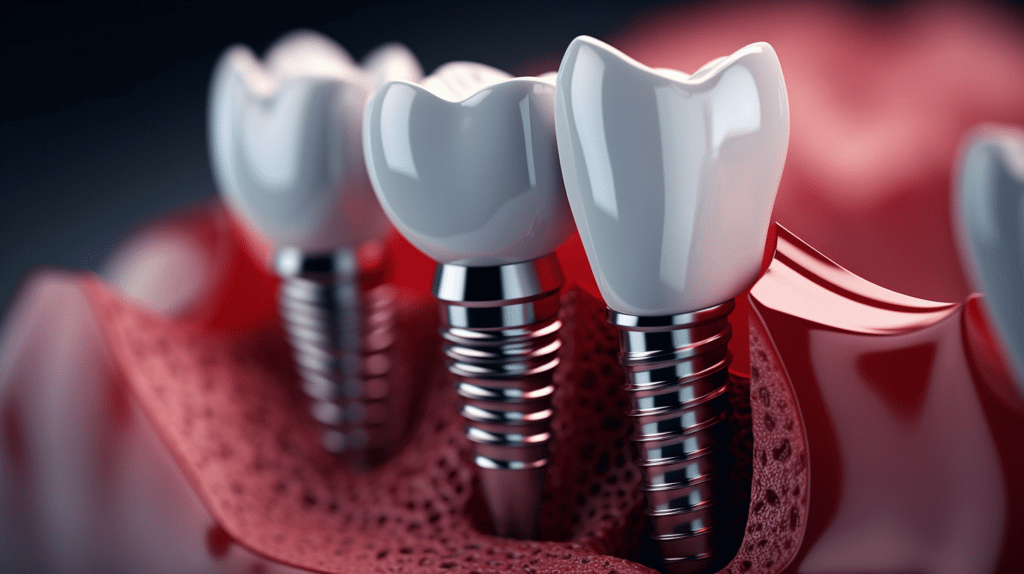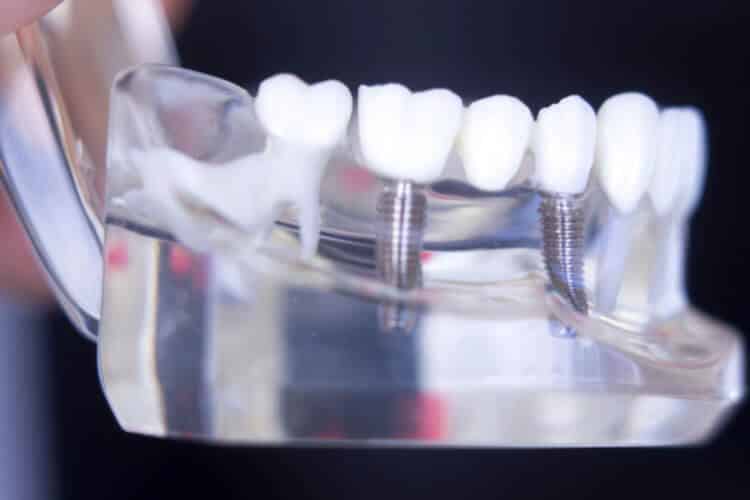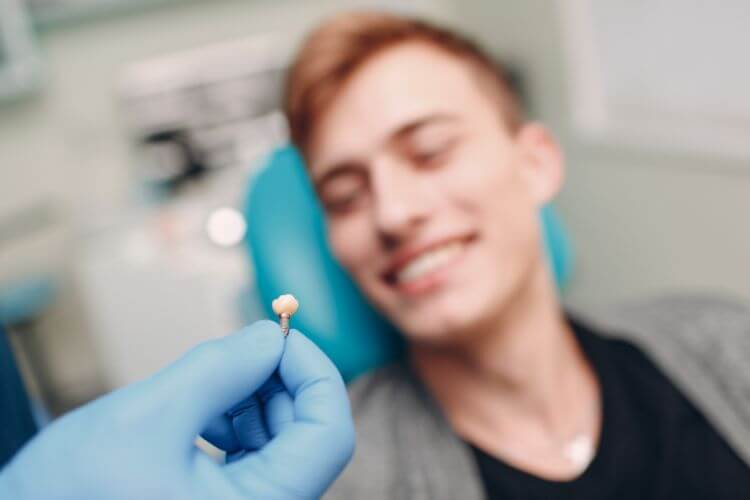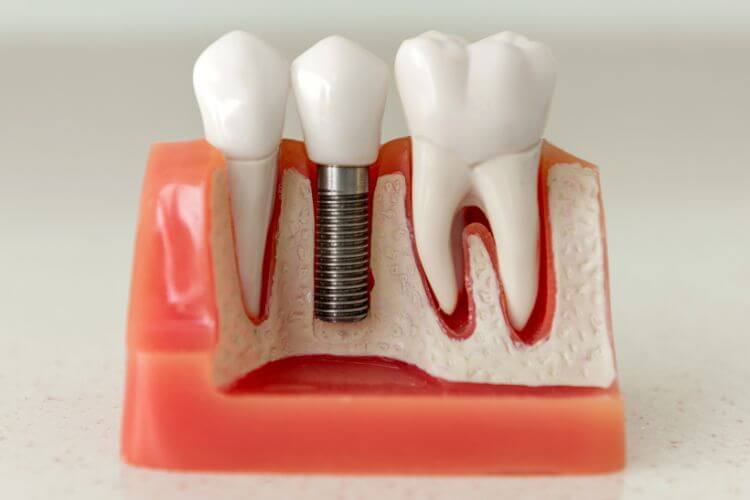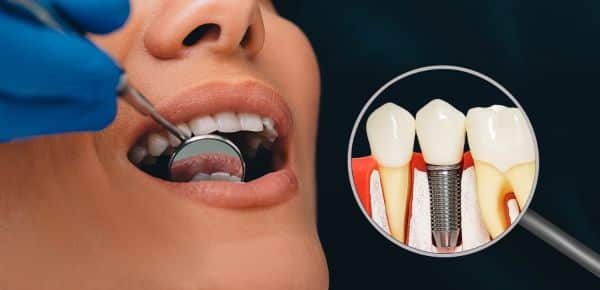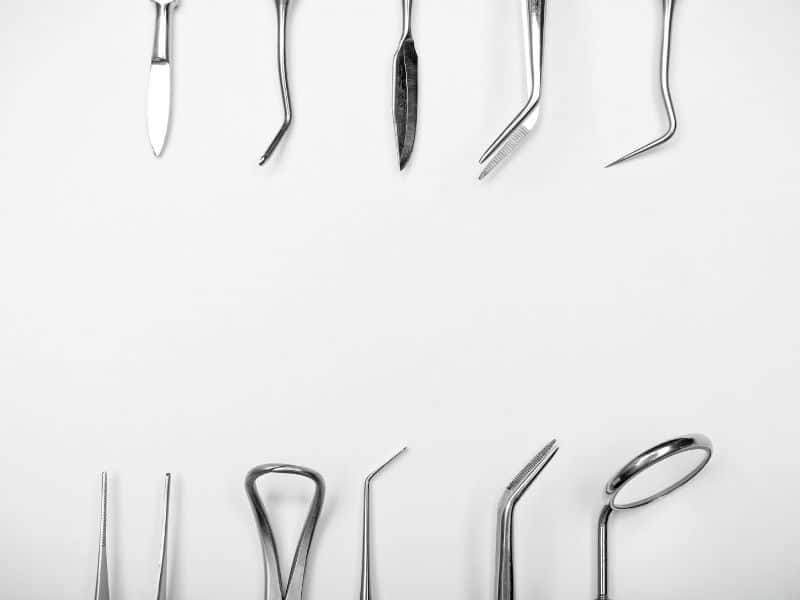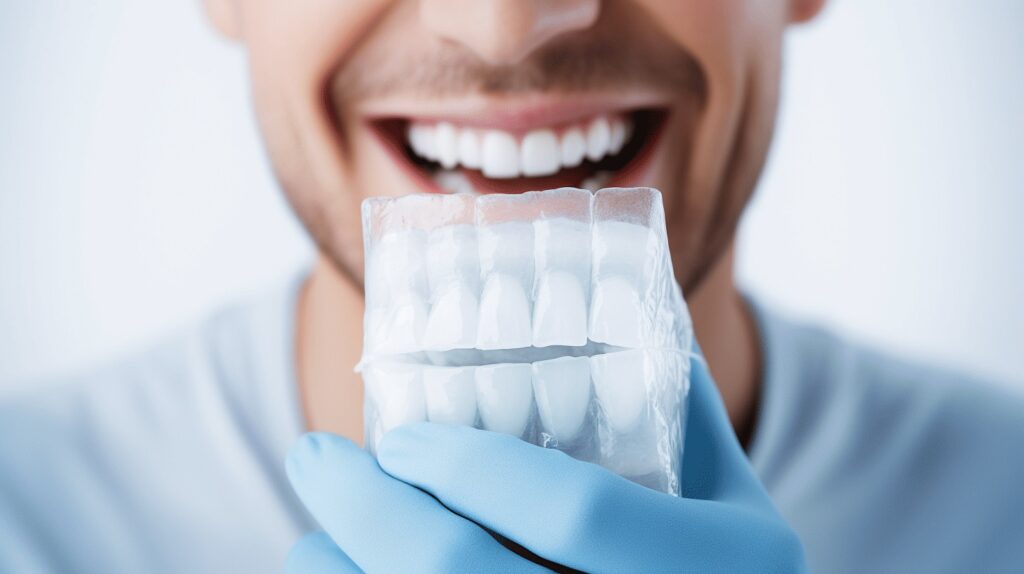As we step into the future, innovative developments are continuously transforming our world, and the field of dentistry is no exception. Ranging from cutting-edge technological advancements to the embrace of sustainability, trends are remarkably shifting the landscape of dental implantology. Accompany us as we explore the outskirts of progress, dissecting what the horizon of 2024 holds for dental implants.
Unraveling the progression happening in dental implantology not only paves the way for unprecedented solutions and practices but also lets patients earmark their journey towards healthier smiles 💚. Understanding the nuances of these revolutionary advancements helps us all—patients and practitioners alike—interface confidently with the future of dental health.
In the sections that follow, we’ll navigate through promising technological breakthroughs 🚀, introducing new materials and techniques, and the rise of digital dentistry 👩💻. We’ll delve into the implications these developments bring to both clinicians and patients. Finally, we’ll explore how sustainability and ethics are solidifying their roles in shaping the dental implant industry’s future.
Grab a cup of coffee ☕ and let’s illuminate our path towards a future of engaging smiles and grounded dental health. Join us as we journey into 2024, exploring the new frontiers dental implants are about to cross.
Table of Contents
The Promise of 2024 in Dental Implants
Ever held an envious gaze at that radiating confident smile from a billboard or an Instagram influencer? 😏 Well, you certainly are not alone. For many, the dream of a perfect smile seems just beyond reach. But what if we told you that superior technology and innovative materials in the dental world can bring this dream right to your doorstep? Yes, that’s right! With the upcoming developments set for 2024 in dental implants, grinning from ear to ear with a flawless set of teeth is no longer a far-fetched fantasy!💫
Technological Advancements
The promise of 2024 brings with it a wave of exciting dental implant technologies that sure to have us grinning wide.
- First off, we have 3D printing. No longer confined to sci-fi realms, this technology is now all set to personalise dental implants to a degree never seen before. With 3D printed implants, you can say goodbye to ‘one size fits all’ and hello to comfort and perfect fit!
- Then there’s the advent of AI or Artificial Intelligence in dentistry. Yes, you heard it right! Your future dentist might very well be a gentle bot, deftly handling procedures with precision unmatched by human hands.
- Lastly, under the spotlight is nanotechnology. Merging the minuscule world of atoms with the dental industry promises to offer exciting solutions like self-cleaning implants and faster recovery rates.
“It’s like science fiction becoming reality.”
As you can see, the future of dental implants is riddled with fascinating strides forward. It’s mind-boggling to consider how much dentistry has evolved, and the inspiring part is, we’re just getting started!
Materials and Techniques
But it’s not just the technology that’s about to change the game. Dental materials and techniques are gearing for a revolution too.
- For starters, zirconia implants are being touted as the next big thing. Zirconia boasts the strength of titanium yet offers a more natural look. An upgrade long overdue!
- There’s also the promise of new surgical techniques. Guided bone regeneration and sinus lift procedures are now being mastered to facilitate dental implants in even the most complex of cases.
“The more challenging the situation, the more interesting the solution.”
So there you have it! As we surge headfirst into the dawn of 2024, the realm of dental implants is brimming with potential and a promise of transformative changes. Whatever your dental concerns might be, rest assured, the answers are just around the corner!
Innovations in Dental Implant Materials and Techniques
We’re always excited about dental science and technology: not just because we’re nerds (which we are!) 🤓, but also because every advance means better care for folks like you. Among the many corners of dental science, implant materials and techniques stand out for their fast-paced innovation rate. Let’s delve into what’s new and exciting in this world, particularly in terms of biomaterials, biotechnology, and computer-aided design and manufacturing.
Biomaterials and Biotechnology
Dental implants have traditionally been made from titanium due to its excellent strength, bio-compatibility, and osseointegration capabilities i.e., it integrates with your jawbone very well. But there’s always room for improvement!
Thanks to the wonders of biotechnology, we’ve seen a wave of advanced materials that can take implants to the next level. For example:
- Bioactive glass: This synthetic compound promotes the growth and regeneration of bone tissue. That’s great news if you’re getting an implant!
- Zirconia: Dental implants made from zirconia are gaining popularity for their superior aesthetic appeal, being nearly indistinguishable from natural teeth. Plus, they’re just as strong as titanium.
Computer-Aided Design and Manufacturing
Now, what if we told you that dental implants could be made faster, cheaper, and better thanks to the power of computers? Yes, dental implantology is now benefiting from the wonders of computer-aided design (CAD) and computer-aided manufacturing (CAM).
In essence, this process involves:
- Using imaging technology to create a 3D model of your mouth
- Designing the perfect dental implant for you based on that model
- Building the implant using cutting-edge manufacturing techniques
The result? A top-notch dental implant, perfectly tailored to you, that can be produced more efficiently than ever before.
Our smiles may make us unique, but when it comes to dental implants, we’re all better off with a little bit of tech and innovation on our side! These advancements in materials and design/manufacturing techniques are truly a game-changer, offering better experiences, outcomes, and smiles to dental patients across the world.
Dental Implants In 2024 – The Rise of Digital Dentistry
Welcome to an era where tradition meets technology. No sector has remained untouched by the digital revolution, and dentistry is no exception. This comprehensive shift has dramatically transformed the sector, opening a world of possibilities, and dentistry is only scratching the surface.
3D Printing in Dental Implants
Today, 3D printing is at the forefront of digital dentistry🦷. This technology has paved the way for precision and personalized care in dental implants. With 3D printing, dentists can now create a precise model of the patient’s mouth, helping them plan the implant surgery with minimal risk of error.
Here are a few game-changing benefits of 3D printing in dental implants:
- Accuracy: 3D printing provides detailed and accurate replicas of the patient’s oral anatomy, enhancing the precision of implant placement.
- Time-Efficiency: Traditional methods of dental model making are time-consuming. However, 3D printing produces models within hours, speeding up the treatment process.
- Patient-Comfort: With 3D models, patients get a chance to visualize their treatment outcome beforehand, thus reducing anxiety or fear of the unknown.
Integrative Dentistry: AI and Machine Learning
Wondering about the future of dental science? Say hello to Artificial Intelligence (AI) and Machine Learning. These cutting-edge technologies are not just buzzwords anymore. They’re dramatically changing how we understand and practice dentistry.
AI and machine learning in dentistry can:
- Enhance Diagnostic Accuracy: AI algorithms can analyze radiographic images to detect dental issues often overlooked by the human eye.
- Predict Treatment Outcomes: Advanced machine learning models can simulate potential treatment results.
- Streamline Administrative Tasks: AI can automate appointment scheduling, reminders, and follow-ups, improving the patient experience.
Intraoral Scanners: The Future of Impression Dentistry
Intraoral scanners are another exciting addition to the panorama of digital dentistry. These handheld devices map the inside of a patient’s mouth, providing an accurate, 3D digital impression. This, in turn, allows dentists to design and create crowns, bridges, and implants that fit perfectly.
The advantages of intraoral scanners include:
- Enhanced Comfort: Say goodbye to unpleasant physical impressions. Digital scanning is comfortable and convenient for patients.
- Time-Saving: Intraoral scanners provide instant results, speeding up the overall treatment process.
- Highly Accurate: These scanners capture minute details, ensuring accurate and efficient diagnosis and treatment.
In the race towards digitalization, dentistry has taken huge strides. With advancements like 3D printing, AI and machine learning, and intraoral scanners, we’re seeing a better, more efficient, and patient-centric approach towards dentistry. Isn’t it exciting to envision what the future holds in store for us? As we continue adapting these trailblazing technologies, we’re sure dentistry will only get better, faster, and more innovative! 🌟🙌
Implications of these Advancements for Patients and Clinicians
In today’s dynamic healthcare environment, we’re bearing witness to the dawn of a new era, lavish with groundbreaking advancements in technology and techniques that are remarkably changing the patient-physician landscape. Faster recovery times, precise and individualized treatment and improved clinical outcomes – these are only a few among myriad benefits patients and clinicians are reaping from this auspicious dawn. Let’s take a closer look at these multi-faceted benefits.
Reduced Pain and Recovery Time – Dental Implants In 2024
Many of the cutting-edge technologies we are fortunate to have at our disposal today, such as minimally invasive surgical techniques and laser therapy, have drastically reduced the discomfort that patients experience. Yesteryear’s anxiety-laden hospital stay has today morphed into outpatient procedures with patients returning home comfortably on the same day. 🏥💉
Take, for instance, laparoscopic surgery, favored for its smaller incisions and shorter recovery time. We are continually improving our techniques to ensure a further cutback on the duration for recovery and a noticeable reduction in pain. Better yet, we are also making headway on reducing the need for postoperative pain medication.
Precision and Personalization
In the past, one-size-fits-all medicine was widely practiced, but the tide has since turned. We’re stepping into an era of personalized healthcare. Using health analytics, genetic testing and artificial intelligence, we’re able to diagnose accurately and tailor treatments to a patient’s specific needs. The once seemingly futuristic dream of personalized medicine, today, is our reigning reality.
A simple shift in how we view and approach an individual’s health is paving the way for a more holistic and precise treatment. Predictability is evolving into precision, whereby we can make well-informed decisions and design a bespoke health plan that is just the perfect fit for each individual patient. 👨⚕️🧬
Improved Clinical Outcomes
The culmination of reduced pain, shorter recovery times and personalized treatment strategies adds up to improved clinical outcomes. We’re seeing fewer complications during procedures, less frequent readmissions to hospitals and a significant rise in patient satisfaction rates.
These advancements are not only enhancing the quality of life for patients but also making it easier and more rewarding for us, the clinicians, to do what we love – help people lead healthier lives.
In essence, the implications of advancements in health and medical technology are profoundly transformative. From microscopic technology that can predict illness before it even begins to robotic advancements creating waves in surgery, we stand on the brink of a new age, one filled with unprecedented possibilities for a healthier tomorrow. 🌟💊
Rising Trends: Sustainability and Ethics in Dental Implants
As we ride the wave of the 21st century, one thing becomes crystal clear to us – the importance of sustainability, and ethics in all aspects of our lives, including healthcare. Today, we spin the spotlight on a rather intriguing industry where these principles are making headline news – dental implants. Sounds surprising? Let’s uncover the rising trends of sustainability and ethics in the world of dental implants together.
Dental Implants In 2024 – Eco-friendly Dental Implants
Recently, the dental implant industry has seen exceptional progress towards eco-friendly practices. A growing number of dental professionals are embracing environmentally-sustainable alternatives to traditional dental implants. But what exactly does this mean?
- Material Conservation: The production process of dental implants has been streamlined to utilize less energy and produce fewer waste products, contributing to a reduction in the overall environmental footprint of dental practices.
- Biocompatibility: The sustainability movement steers towards the use of biocompatible materials – that is, substances that are harmonious with the human body and do not harm the environment.
- Recyclability: Dental materials are increasingly designed for recycling or reuse at the end of their lifecycle, aiming to create a closed-loop system and reduce landfill waste.
“Eco-friendly dental implants are rapidly becoming the new normal, providing excellent oral health solutions without causing harm to our beautiful planet.”
Additionally, we are seeing promising research and development initiatives focusing on fully organic dental implants. Imagine this: A dental implant material grown naturally, much like planting an apple tree. While still in the early stages, this organic revolution could dramatically reduce the environmental impact of dental care.
Ethical Sourcing of Implant Materials
Another significant shift we’re witnessing is the rising demand for ethical sourcing of dental implant materials. With transparency being the new ethos of our time, dental professionals are more careful about where they source their implant materials and demand full disclosure of the supply chain. But why does this matter?
- Human Rights: It’s crucial to ensure that materials are sourced from legal mines with humane working conditions and fair wages, thus respecting human rights and promoting social justice.
- Environmental Protection: Ethical sourcing also means taking into account the impact on the environment. Reducing harmful environmental practices with certified and controlled mines not only conserves biodiversity but also helps prevent climate change.
- Health & Safety: By sourcing materials ethically, we can guarantee they meet stringent health and safety standards, thus ensuring the wellbeing of our patients.
In a nutshell, as the world shifts towards greater sustainability, the landscape of dental implants is no exception. It’s not just about creating beautiful smiles anymore. It’s about doing it in a way that respects our planet, values human rights, and guarantees safe, quality care for our patients. An exciting time, and we can’t wait to see where these fantastic trends take us next!
Conclusion – Dental Implants In 2024
As we navigate the new year, we expect to see many exciting innovations in the field of dental implants. That will fundamentally transform the way we approach oral healthcare. With advancements like biomaterials, biotechnology, 3D printing, artificial intelligence, and machine learning. We are poised to turn the corner on procedures offering reduced pain and recovery times, enhanced precision and personalization, and, most importantly, improved clinical outcomes for patients.
Moreover, in the spirit of ethical responsibility and sustainability, we’re equally enthused to encounter the rising trends in eco-friendly dental implants and ethically sourced materials. This opens up incredible avenues for patients who not only want to take care of their smiles but also care deeply about the health of our planet. 😁🌎
At Wilshire Smile Studio, we’re committed to staying at the forefront of these developments. As the pioneers in adopting the latest technologies and methods in implant dentistry, we strive to provide our patients with the best care and treatment options available. So, expect nothing less than the best as you step into 2024 with us. Here’s to more innovation, less pain, and brighter smiles for everyone! 🎉🦷
Book your free consultation with us online or call (323) DENTIST (323-336-8478) today.
Frequently Asked Questions
1. What are dental implants?
Dental implants are surgical fixtures placed in the jawbone to replace the roots of missing teeth. They provide a strong foundation for artificial teeth and support various dental prostheses.
2. What are the benefits of dental implants?
Dental implants offer several benefits, such as improved appearance and speech, enhanced comfort and convenience, easier eating, better oral health, and long-term durability compared to other tooth replacement options.
3. What advancements are expected in dental implants in 2024?
In 2024, advancements in dental implants are anticipated in areas such as improved implant materials, faster and more efficient implant procedures, enhanced aesthetics, better integration with natural bone, and advancements in implant technology.
4. Are dental implants suitable for everyone?
Dental implants are not suitable for everyone. Eligibility for dental implants depends on factors such as overall health, gum condition, availability of sufficient jawbone, and commitment to maintaining good oral hygiene. A dental professional can evaluate and determine if dental implants are a suitable option for an individual.
5. Is the dental implant procedure painful?
The dental implant procedure generally involves minimal discomfort. Local anesthesia is used during the surgery to numb the area, ensuring a pain-free experience. After the procedure, mild soreness and swelling may be experienced, but these can be managed with over-the-counter pain relievers.


